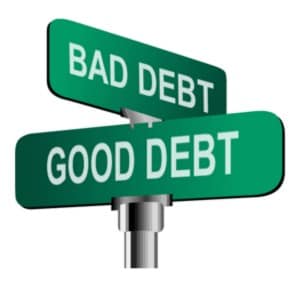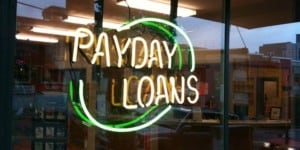 GOOD DEBT BAD DEBT USING CREDIT WISELY
GOOD DEBT BAD DEBT USING CREDIT WISELY
Good debt bad debt using credit wisely: Introduction
Good debt bad debt using credit wisely are another one of those financial terms like Balloon Payments, APY – Annual Percentage Yield, Expense Ratios and Cash Flow that are often misunderstood. As we continue our series of confusing financial terms we thought that the holiday season seemed like the opportune time to explore the concept of good debt.
Good debt bad debt using credit wisely: What is good debt?
Typically we define good debt as borrowing money for something that will appreciate in value and increase your net worth. Examples of good debt are taking out a mortgage to purchase your home and investing in your education.
Good debt bad debt using credit wisely: What is bad debt?
Typically we define bad debt as borrowing money for something that will depreciate in value and does not increase your net worth. Examples of bad debt are credit card debt and debt for luxury items you can’t really afford like fancy cars and expensive vacations.
Good debt bad debt using credit wisely: Is good debt a myth?
The old adage that there’s no sure thing except for death and taxes is true. Although taking out a mortgage to buy a home and investing in your education seem like sure things, sadly that isn’t always the case. If you take out a mortgage that’s the maximum you can handle and the interest rates go up, how will you pay for your house? What would happen if you lost your job? Would you lose your house as well? Investing in your education isn’t a sure thing either. There are many PhDs waiting tables. A good education is no longer a guarantee of a good paying job. Good debt is a myth, unless you are also using the credit wisely. At the end of the day, debt is still debt and must be repaid.
Good debt bad debt using credit wisely: What to do about your debt?
Canadians are struggling with debt like never before. Whether you’ve taken on what you consider to be good debt or bad debt, it still needs to be dealt with. And, to deal with debt you need the help of a debt professional – a trustee. Dealing with debt is not a DIY project. Call Ira Smith Trustee & Receiver Inc. today and make an appointment for a free, no obligation consultation. We can give you back peace of mind and put you on the road to debt free living Starting Over, Starting Now.


